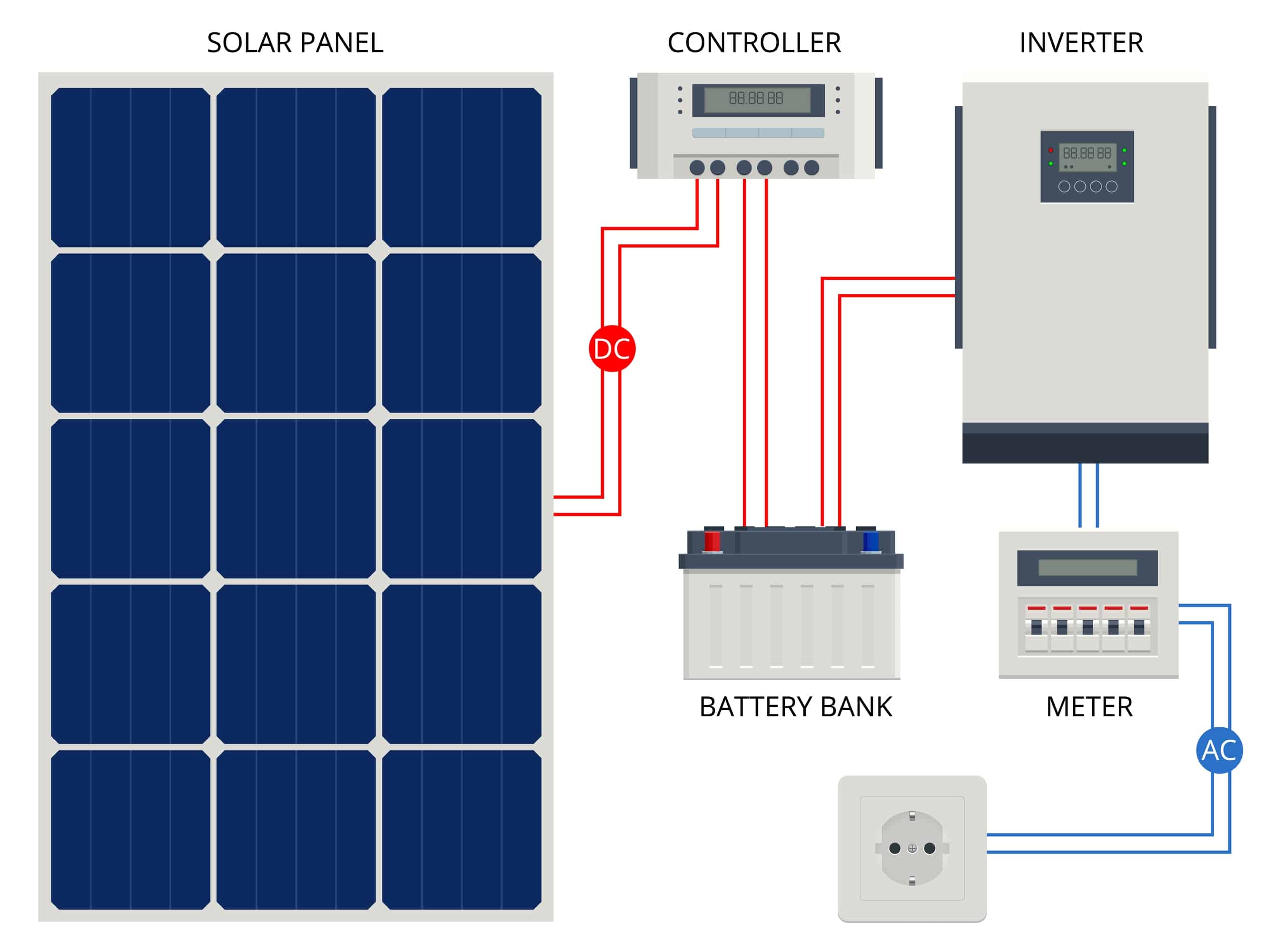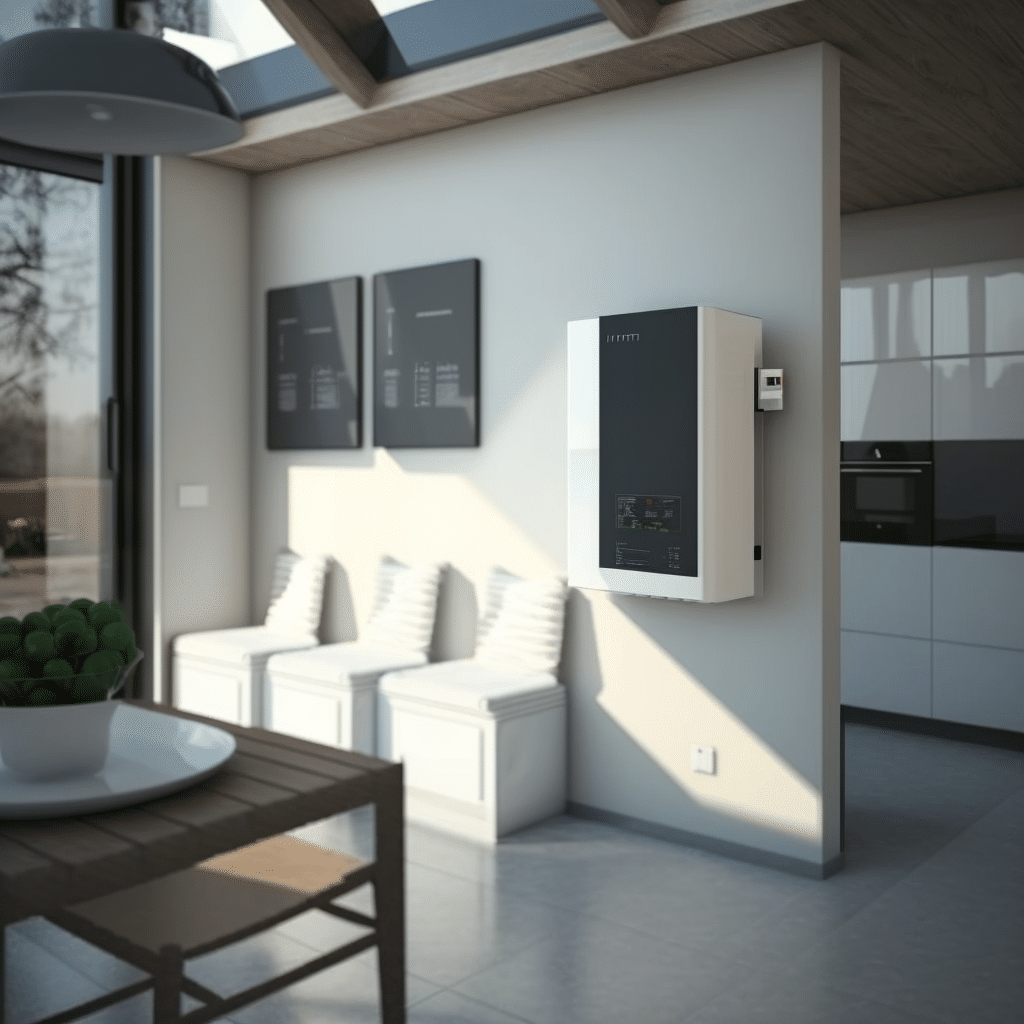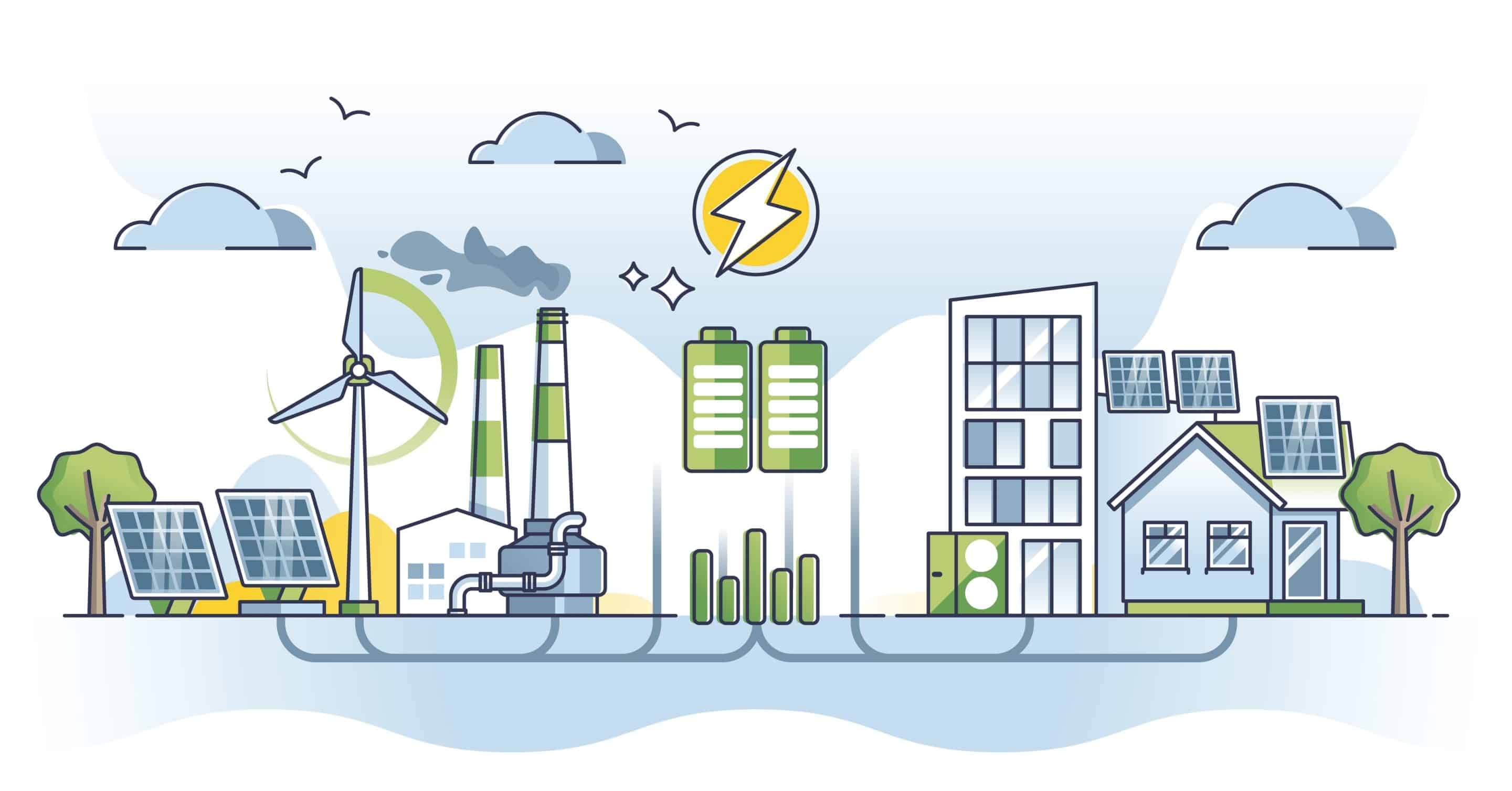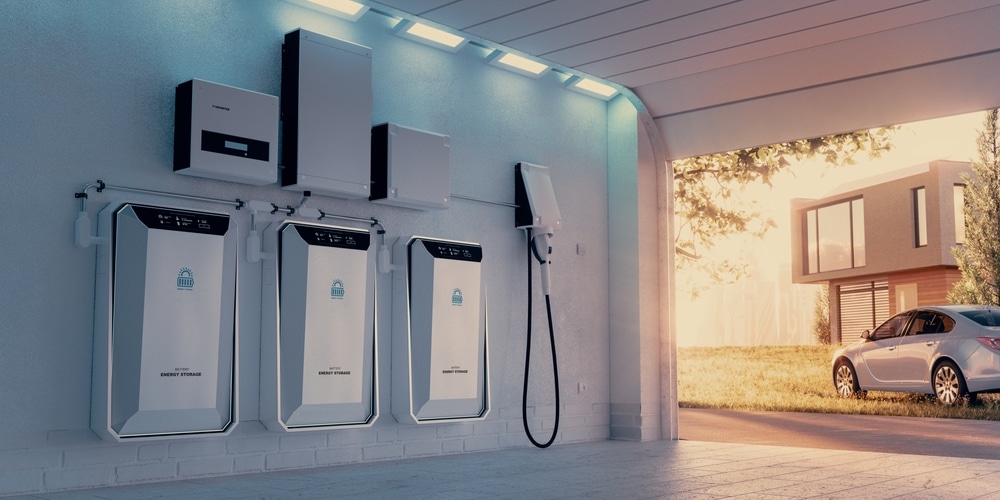What is a solar battery?
Solar batteries are rechargeable batteries that are designed to store the energy generated by solar panels for later use. They are a key part of a solar energy system, helping to ensure that the energy generated during the day can be used when the sun goes down. In addition to providing back up power, solar batteries can also help to reduce demand on the grid during peak usage periods, reducing the need for fossil fuel power plants. One of the most significant benefits of solar batteries is their ability to save homeowners money on their electricity bills. By storing excess solar energy during the day, homeowners can use that energy to power their homes at night instead of buying electricity from the grid. This can result in significant savings over time, especially in areas with high electricity prices. Another benefit of solar batteries is their ability to provide backup power during outages. With a solar battery system, homeowners can continue to power their homes even when the grid is down, providing peace of mind and added security. Of course, like any technology, solar batteries have their limitations. One of the main challenges with solar batteries is their cost. While the cost of solar panels has come down significantly in recent years, solar batteries are still relatively expensive. However, as the technology improves and production scales up, the cost of solar batteries is expected to come down. Another challenge with solar batteries is their limited storage capacity. Most solar batteries are designed to provide backup power for a few hours at most, which may not be sufficient for extended outages However , as the technology improves, we can expect to see larger and more efficient solar bateries that can provide backup power for longer periods of time. Overall, solar batteries are a promising technology that will play an increasingly important role in our transition to cleaner and more sustainable energy sources. As an energy storage expert, I believe that solar batteries will help to accelerate the adoptiion of solar energy and pave the way for a more sustainable future.

Solar battery storage, how to install.
I know that installing a solar battery storage system can be a great investment for homeowners looking to maximize the benefits of their solar panels. By storing excess energy generated during the day, solar battery storage systems can provide reliable backup power and help homeowners save money on their electricity bills.
Here’s a step-by-step guide on how to install a solar battery storage system:
- Determine your energy needs: The first step in installing a solar battery storage system is to determine your energy needs. You will need to calculate how much energy you use on a daily basiss and how much energy you want to store in your battery.
- Choose a battery: Once you have determined your energy needs, you will need to choose a solar battery that can meet those needs. There are many different types of solar batteries available, including lithium -ion, lead-acid, and flow batteries. Each type of battery has its own advantages and disadvantages, so it’s important to choose the one that is right for your needs.
- Install your solar panels: Before you can install your solar battery storage system, you will need to install your solar panels. This typically involves mounting the panels on your roof or on a nearby structure and wiring them to an inverter that converts the DC power generated by the panels into AC power that can be used in your home.
- Install your battery: Once your solar panels are installed, you can begin installing your battery. The specific installation process will vary depending on the type of battery you choose, but it will typically involve mounting the battery in a safe location and wiring it to your inverter and your home’s electrical system.
- Connect your system : Once your solar panels and battery are installed, you will need to connect your system to the grid. This typically involves installing a meter that tracks the amount of energy you generate and consume, as well as any excess energy you export back to the grid.
- Configure your system: Finally, you will need to configure your system to ensure that it is operating properly. This typicaly involves programming your inverter to optimize the flow of energy between your solar panels, battery, and the grid.
It’s important to note that installing a solar battery storage system can be a complex process, and it’s recommended that you hire a licensed profesional to do the installation. A professional installer can ensure that your system is installed safely and properly, and can help you choose the right components for your needs. With the right installation and configuration, a solar battery storage system can provide you with clean, reliable energy for years to come.

Solar battery storage price
The cost of solar battery storage systems can vary widely depending on a number of factors, including the size of the system, the type of battery used, and the installation costs. Generally speaking, solar battery storage systems can range in price from a few thousand dollars to tens of thousands of dollars.
One of the biggest factors affecting the price of solar battery storage systems is the type of battery used. Lithium-ion batteries are currently the most popular type of battery for solar storage systems, but they can be more expensive than other types of batteries, such as lead-acid batteries. However, lithium-ion batteries tend to have a longer lifespan and higher efficiency, making them a popular choice for those who can afford them.
Another factor affecting the cost of solar battery storage systems is the size of the system. The larger the system, the more expensive it is likely to be. However, larger systems also have the potential to provide more cost savings over time, as they can store more energy and reduce reliance on the grid.
Installation costs can also add to the overall price of a solar battery storage system. It’s important to hire a licensed professional to install your system, as this can ensure that it is installed safely and properly. However, installation costs can vary widely depending on where you live and the complexity of the installation.
Despite the upfront costs, solar battery storage systems can provide significant cost savings over time. By storing excess energy generated by your solar panels, you can reduce your reliance on the grid and save money on your electricity bills. Additionaly, solar battery storage systems can help to reduce demand on the grid during peak usage periods, which can help to reduce the need for fossil fuel power plants and promote a more sustainable energy future.
As the technology continues to improve and production scales up, we can expect to see the cost of solar battery storage systems come down in the coming years. This will make solar battery storage systems more accessible to homeowners and help to accelerate the adoption of solar energy as a sustainable and reliable energy source.
The price of solar battery storage systems can be measured in a number of ways, including cost per kilowatt-hour (kWh). The cost per kWh is a useful way to compare the cost of different types of energy storage systems, as it takes into account both the upfront costs of the system and the amount of energy it can store over its lifetime.
Currently, the cost of solar battery storage systems ranges from around $200 per kWh to $500 per kWh. Lithium-ion batteries, which are currently the most popular type of battery used for solar storage systems, tend to be on the higher end of this range due to their higher efficiency and longer lifespan.
It’s worth noting that the cost per kWh of solar battery storage systems can vary widely depending on a number of factors, including the size of the system, the type of battery used, and the installation costs. Additionally, the cost per kWh can be influenced by external factors such as government incentives and subsidies.
Despite the upfront costs, solar battery storage systems can provide significant cost savings over time, particularly in areas with high electricity prices. By storing excess energy generated by your solar panels, you can reduce your reliance on the grid and save money on your electricity bills. Additionally, solar battery storage systems can help to reduce demand on the grid during peak usage periods, which can help to reduce the need for fossil fuel power plants and promote a more sustainable energy future.
When it comes to the cost of lithium-ion (Li-ion) batteries versus lithium iron phosphate (LFP) batteries, there are several factors to consider. While LFP batteries tend to have a higher upfront cost than Li-ionn batteries, they often have a longer lifespan and require less maintenance , which can make them a more cost-effective choice over time.


